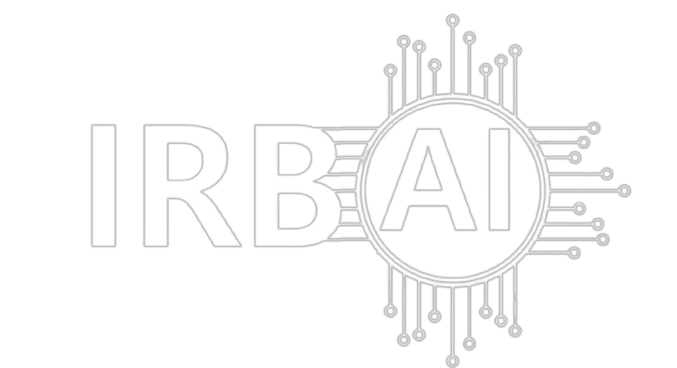AI LAW
AI Legislative Trends
IRBAI plays a crucial role in promoting international alignment across AI laws. As AI technologies transcend borders, disparate laws and regulations can create challenges for developers and governments. IRBAI helps bridge this gap.
AI legislation refers to the rules, laws, and guidelines created to regulate the development, deployment, and use of AI technologies across sectors. We noticed several trends shaping its future:
AI ACCOUNTABILITY AND LIABILITY
Increasing calls for laws that establish clear accountability for AI-driven decisions, particularly in high-stakes sectors like healthcare, autonomous vehicles, and finance.
AI AND PRIVACY
Ongoing discussions about data privacy laws, including protections against AI surveillance and ensuring transparency in AI decision-making
AI ETHICS
Growing interest in preventing algorithmic bias and ensuring equitable outcomes in AI applications.
GLOBAL TRADE
Trade agreements will likely evolve to address AI’s role in digital economies and cross-border data flows
European Union AI Act (EU)
The EU AI Act is the first comprehensive legal framework designed to regulate high-risk AI systems. It categorizes AI systems based on their potential risks and sets clear requirements for transparency, accountability, and data protection.
Key provisions:
- Categorization of AI applications by risk level
- Stricter requirements for high-risk AI
- Transparency obligations for AI systems
- Human oversight requirements
Full text: European Commission – AI Act Proposal
Overview: EU AI Act Overview – European Commission
General Data Protection Regulation (GDPR) (EU)
The GDPR is one of the most influential data protection regulations globally, impacting AI systems that process personal data. It enforces strict requirements regarding the use of personal data and automated decision-making.
Key provisions:
- Explicit consent for data processing
- Right to explanation for automated decisions
- Data minimization and transparency
Full text : General Data Protection Regulation (GDPR)
Overview: GDPR Overview – European Commission
U.S. AI Executive Orders & National AI Initiative Act (USA)
In the U.S., AI development is guided by several initiatives:
- AI Executive Orders on ethics, development, and national security
- The National AI Initiative Act, which establishes a coordinated national strategy for AI research, development, and ethical concerns.
Key provisions:
- Investment in AI research and innovation
- Ethical guidelines for AI Establishment of a national
- AI council
Full text: National AI Initiative Act of 2020 – Congress.gov
China’s New Generation Artificial Intelligence Development Plan (China)
China has a national strategy to become the global leader in AI by 2030, with legislation focused on fostering AI development while addressing issues of ethics, security, and data governance.
Key provisions:
- National focus on AI development for economic and military applications
- Emphasis on data security and privacy
- Development of AI in industry, healthcare, and education
Full text: China’s New Generation AI Development Plan – Chinese Government
Overview and details of the plan: China AI Strategy – Chinese Government
Brazil’s General Data Protection Law (LGPD) (Brazil)
Brazil’s LGPD regulates personal data usage, which directly impacts AI systems that process such data, similar to GDPR. It emphasizes data subject rights and data security
Key provisions:
- Clear consent for data processing
- Data subject rights (right to access, correction, and deletion)
- Cross-border data flow regulations
Full text (in Portuguese):Lei Geral de Proteção de Dados (LGPD)
Overview: LGPD Overview – Brazilian Government
Japan’s AI Governance and Ethical Guidelines
Japan’s AI governance includes principles for ensuring human-centered AI, focusing on ethical considerations, public safety, and privacy.
Key provisions:
- Development of AI-friendly legislation
- Ethical AI development with a focus on the public good
Full text: Japan’s AI Ethics Guidelines (Japanese Ministry of Internal Affairs and Communications)
Overview: AI Guidelines – Japan’s Ministry of Internal Affairs
AI Governance Guidelines by the OECD
The OECD Principles on AI are non-legally binding but provide an influential set of ethical guidelines for AI governance, including human rights, privacy, fairness, and accountability.
Key provisions:
- Human rights and social well-being integration into AI systems
- Fairness in algorithmic decision-making
- Ensuring accountability in AI design
Full text: OECD AI Principles
Overview: OECD AI Policy Observatory
United Nations AI Ethics Guidelines
The UNESCO AI Ethics Framework provides global guidance on AI ethics, including transparency, accountability, and human rights protection.
Key provisions:
- Development of AI-friendly legislation
- Ethical AI development with a focus on the public good
Full text: UNESCO Recommendation on the Ethics of AI
